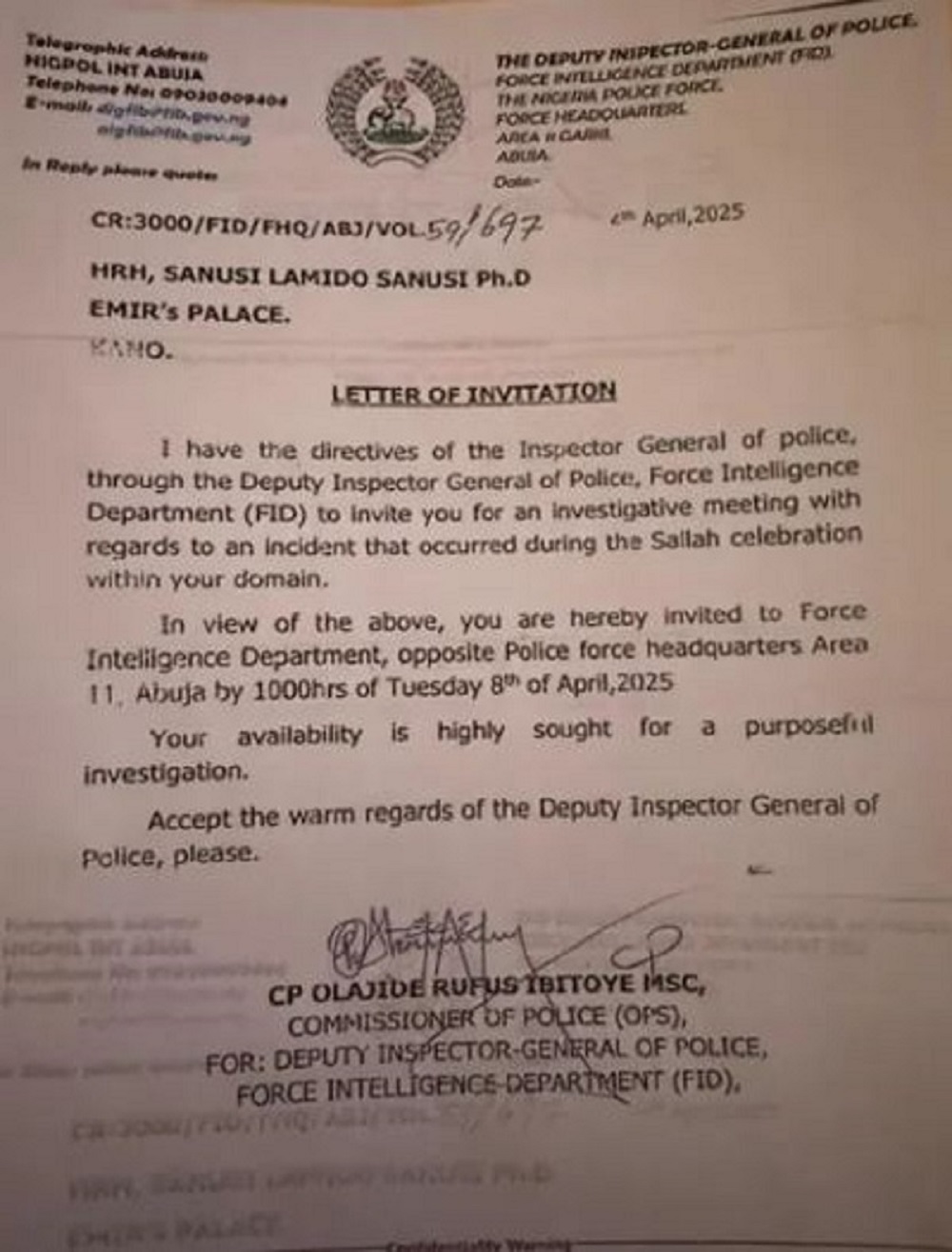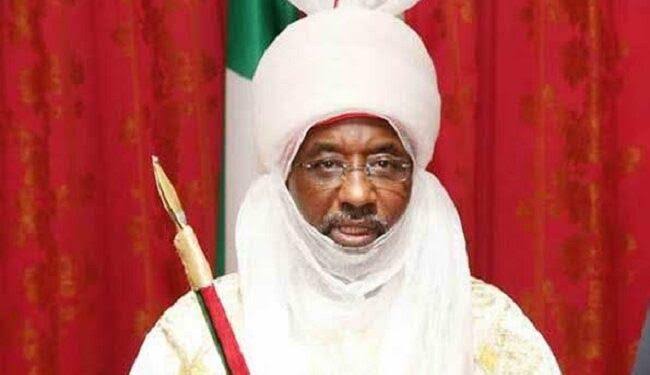The reinstated Emir of Kano, Muhammadu Sanusi II has a date with the police on Tuesday, April 8.
He has been invited for questioning over alleged killings during the last Sallah celebration in Kano.
Commissioner of Police (Operations) Olajide Rufus Ibitoye in an April 4,2025 letter to the emir said the invitation was at the instance of the Inspector General of Police.
The emir is required to report at the Force Intelligence Department, Area 11, Abuja, on the day by 10:00am.
Ibitoye, in the letter, said: “I have the directives of the Inspector General of police, through the Deputy Inspector General of Police, Force Intelligence Department (FID) to invite you for an investigative meeting with regards to an incident that occurred during the Sallah celebration within your domain.
“Your availability is highly sought for a purposeful investigation,” the invitation letter emphasised.
Two suspects have been arrested in connection with the killings,the police said.
One Usman Sagiru, 20, and 35-year old Nasir Idris, were arrested in connection with the killing and attack on vigilance group members who were part of the Emir’s entourage Emir after Eid prayers on Sunday, March 30, at about 12:40pm.
The Kano Command also invited Shamakin Kano, Alhaji Wada Isyaku for interrogation following the reported defiance on the ban on Durbar activities after Sallah.
Sanusi presided over the Eid prayer attended by Governor Abba Yusuf and other top government officials at the Kofar Mata Eid prayer ground in Kano. He was also at Government House for a homage on the governor in continuation of the Sallah celebrations.
Police spokesman in Kano, Abdullahi Haruna Kiyawa, a Superintendent of Police (SP) had said: that while dispersing from the Eid praying ground, Usman Sagiru and others, who are now at large, allegedly stabbed Surajo Rabiu, a vigilance group member from Sabon Titi Jaba Quarters.
The victim later died from injuries.
“Another vigilante member, Aminu Suleman, who was among those providing shield for Emir Sanusi, sustained injuries and is currently receiving treatment at Murtala Mohammed Specialists Hospital Kano.”
The Commissioner of Police in Kano State, Ibrahim Adamu Bakori, subsequently constituted a Special Investigation Panel (SIP) to investigate the violence.
The panel was charged to unravel the “remote and immediate causes” of the violence and “any defiance to the Command’s overt ban on all forms of Durbar or horse riding throughout the Sallah Celebration, based on security concerns in the state.”
The police command in Kano had banned all forms of Durbar and warned that anyone found engaging in such activities would be dealt with decisively.
The police had banned the post-Eid Durbar activities planned by Emir Sanusi and his rival Emir Ado Aminu Ado Bayero on Sallah day, citing security concerns.
Residents are already counting their losses arising from the banning of the Durbar.
The Executive Secretary of History and Culture Bureau, Kano, Arc. Ahmad Abba Yusuf, told reporters in Kano that the Durbar would have presented an interesting economic value chain, ranging from woodwork, metalwork and even horse feed that would have involved farmers’ participation.
“It is such a big loss to the nation, not to the state government of Kano alone,” he said.
Arc. Yusuf estimated that billions of naira was lost.
He put the cost of a horse and its decoration at N1.5 million.
“Now, multiply all these costs by 6,000 horses. And don’t forget that some riders use up to four horses during the event. Meanwhile, it takes a long time of training and preparing a horse just for the Durbar,” he said.
Also counting their losses are 160 tourists who flew in from Belgium, US, UK and other countries to experience the Durbar. The tourists also expressed their disappointments over the cancellation.
Speaking on behalf of the tourists, Mr. Virgil Taylor, a US based tourist, lamented that all he spent to fly to Kano to watch the Sallah Durbar went down the drain..
Taylor, 70, said he had heard a lot about the Kano Durbar. He also did a lot of research on the Durbar so he decided this year to come to Kano and watch its rich grandeur live.
He said: “In recent years I have visited several African nations and in doing my research I just came upon the information about the d Kano Durbar and was excited about it.
“It was totally different from anything I had seen in other places. So, I started planning for this trip over a year ago when I was in Ghana.
“I kept doing my research and I understood that there were many Durbars in Nigeria, but in particular the Kano Durbar as I understood, remains the biggest Durbar to visit.”

